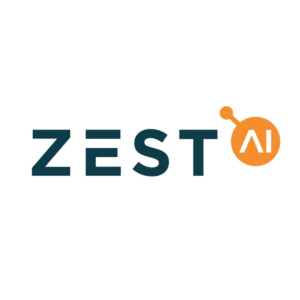AI for Finance
AI for Finance – Smarter Banking, Trading & Fraud Detection
The finance industry is undergoing a profound transformation driven by Artificial Intelligence (AI) integration. From automating routine tasks to providing deep insights into market trends, AI is reshaping how financial institutions operate, manage risks, and engage with customers.
This comprehensive article explores the multifaceted applications of AI for the finance industry, highlighting its benefits, real-world implementations, and future trends that promise to revolutionize the sector further.
Understanding AI in Finance
Artificial Intelligence has emerged as a cornerstone technology in the modern financial landscape, offering innovative solutions to complex challenges. To fully grasp the impact of AI in finance, it is essential to understand its foundational concepts and its critical role in addressing the industry’s evolving needs.
The Importance of AI in Finance
Integrating AI in finance addresses several critical challenges and offers numerous benefits, transforming how financial institutions operate and serve their clients. Key areas where AI makes a significant impact include:
- Enhanced Decision Making: AI provides data-driven insights that improve investment strategies and financial planning.
- Risk Management: AI models can predict and mitigate potential risks by analyzing market trends and financial behaviours.
- Fraud Detection: AI systems identify and prevent fraudulent activities with high accuracy.
- Operational Efficiency: Automation of routine tasks reduces costs and increases productivity.
- Personalized Customer Service: AI-driven tools offer tailored financial advice and customer support.
Key Areas Where AI Transforms Finance
AI’s versatility allows it to revolutionize various facets of the finance industry. Below, we delve into the primary areas where AI transforms, illustrating how financial institutions leverage these technologies to enhance their operations and services.
Risk Management
Effective risk management is paramount in the finance industry, where the stakes are high and the margin for error is minimal. AI enhances risk management by providing sophisticated tools that analyze data, predict potential threats, and recommend mitigation strategies.
Predictive Analytics for Risk Assessment
AI-driven predictive analytics analyze historical and real-time data to assess and predict financial risks. By identifying potential threats early, financial institutions can implement proactive measures to mitigate risks, ensuring stability and resilience.
Example: BlackRock utilizes AI to enhance its risk management capabilities by analyzing market data and economic indicators, enabling more accurate risk assessments and investment strategies.
Stress Testing and Scenario Analysis
AI models simulate various economic scenarios to evaluate the resilience of financial portfolios under different conditions. This helps institutions prepare for adverse market movements and economic downturns, ensuring they can withstand financial shocks.
Example: JPMorgan Chase employs AI for stress testing, allowing the bank to effectively assess the impact of hypothetical economic scenarios on its assets and liabilities.
Fraud Detection and Prevention
Fraudulent activities significantly threaten financial institutions, leading to substantial financial losses and reputational damage. AI offers advanced solutions to detect and prevent fraud with unprecedented accuracy and speed.
Real-Time Transaction Monitoring
AI systems monitor real-time transactions, identifying unusual patterns that may indicate fraudulent activities. By analyzing multiple data points simultaneously, AI enhances the accuracy and speed of fraud detection, reducing the incidence of false positives.
Example: Mastercard uses AI to monitor transactions globally, detecting and preventing fraudulent activities with greater precision and reducing false positives.
Behavioral Biometrics
AI-driven behavioural biometrics analyze user behaviour, such as typing patterns and mouse movements, to authenticate users and prevent unauthorized access. This adds a layer of security, ensuring that only legitimate users can access sensitive financial information.
Example: HSBC implements behavioural biometrics to enhance security, ensuring that only legitimate users can access sensitive financial information.
Customer Service and Personalization
Providing exceptional customer service and personalized experiences is crucial in an increasingly competitive financial landscape. AI empowers financial institutions to deliver tailored services that meet each customer’s unique needs.
AI-Powered Chatbots
AI-powered chatbots provide instant customer support, handling inquiries, processing transactions, and offering financial advice around the clock. These virtual assistants enhance customer engagement by providing timely and accurate responses to customer needs.
Example: Bank of America’s Erica is an AI-driven virtual assistant that helps customers with transactions and bill payments and provides personalized financial insights.
Personalized Financial Planning
AI analyzes individual financial data to offer personalized financial planning and investment advice, helping customers achieve their financial goals. By leveraging AI, financial institutions can deliver tailored recommendations that align closely with each customer’s financial situation and aspirations.
Example: Wealthfront leverages AI to provide automated, personalized investment strategies based on users’ financial profiles and goals.
Algorithmic Trading
Algorithmic trading leverages AI to execute trades at high speeds and volumes, capitalizing on minute market movements that are often imperceptible to human traders. AI-driven algorithms enhance trading strategies, improving returns and reducing risks.
High-Frequency Trading
AI algorithms execute trades at high speeds and volumes, capitalizing on minute market movements often imperceptible to human traders. This type of trading enhances returns by exploiting market inefficiencies in real time.
Example: Renaissance Technologies employs AI-driven algorithms to conduct high-frequency trading, achieving consistent returns by exploiting market inefficiencies.
Predictive Market Analysis
AI analyzes vast datasets, including news articles, social media trends, and economic indicators, to predict market movements and inform trading decisions. This enables financial institutions to make more informed and strategic investment choices.
Example: Two Sigma utilizes AI for predictive market analysis, enhancing its trading strategies by integrating diverse data sources and sophisticated algorithms.
Regulatory Compliance
Navigating the complex regulatory landscape is a significant challenge for financial institutions. AI offers advanced solutions to automate compliance processes, ensuring adherence to regulatory standards and reducing non-compliance risk.
Automated Compliance Monitoring
AI automates regulatory compliance monitoring by analyzing transactions and communications to ensure adherence to financial regulations. This reduces the burden on human compliance teams and enhances the accuracy of compliance efforts.
Example: PayPal uses AI to monitor transactions for compliance with anti-money laundering (AML) and know-your-customer (KYC) regulations, reducing the risk of regulatory breaches.
Natural Language Processing for Document Analysis
AI-driven natural language processing (NLP) tools analyze legal and regulatory documents, extracting relevant information to ensure compliance and streamline reporting. This enhances the efficiency of compliance teams and ensures that financial institutions stay updated with regulatory changes.
Example: KPMG employs AI-powered NLP tools to analyze regulatory documents, enhancing its ability to provide compliant financial services and advisory.
Case Studies: Successful AI Integration in Finance
Real-world implementations of AI in finance demonstrate its transformative potential. The following case studies highlight how leading financial institutions have successfully integrated AI to enhance their operations, improve security, and deliver superior customer experiences.
All these follow the best practices to implement AI into your business processes; there is no need to stress that more.
JPMorgan Chase: COiN Platform
Challenge: Processing thousands of legal documents manually was time-consuming and prone to errors.
Solution: JPMorgan Chase developed the Contract Intelligence (COiN) platform, an AI-powered tool that reviews and interprets legal documents in seconds.
Result: The COiN platform reduced the time spent on document review from thousands of hours to mere seconds, significantly increasing efficiency and accuracy.
Goldman Sachs: Marcus
Challenge: Providing personalized banking services to a growing customer base required scalable solutions.
Solution: Goldman Sachs launched Marcus, an online consumer banking platform that leverages AI to offer personalized financial products and customer support.
Result: Marcus has attracted millions of customers by providing tailored financial solutions and exceptional customer service, enhancing Goldman Sachs’ competitive edge in consumer banking.
American Express: Fraud Detection
Challenge: Detecting and preventing fraudulent transactions in real-time was challenging due to the data’s high volume and complexity.
Solution: American Express implemented AI-driven fraud detection systems that analyze transaction patterns and identify suspicious activities in real time.
Result: The AI systems have significantly reduced fraudulent transactions, enhanced security measures, and improved customer trust and satisfaction.
Square: Cash App
Challenge: Providing millions of users with seamless and secure payment solutions requires advanced technology.
Solution: Square’s Cash App utilizes AI for real-time transaction processing, fraud detection, and personalized financial services.
Result: Cash App has become a leading payment platform, offering users secure and efficient financial transactions and personalized financial management tools.
Capital One: Eno
Challenge: Enhancing customer engagement and providing timely financial assistance required innovative solutions.
Solution: Capital One introduced Eno, an AI-powered virtual assistant that helps customers manage their accounts, track spending, and receive personalized financial advice.
Result: Eno has improved customer engagement and satisfaction by providing instant support and personalized financial insights, positioning Capital One as a tech-savvy financial institution.
Benefits of Integrating AI into Finance
Integrating AI into financial operations offers many advantages that can significantly enhance the performance and competitiveness of financial institutions. These benefits extend beyond operational improvements, providing deeper insights and superior customer experiences.
Enhanced Efficiency
AI automates repetitive tasks, reducing the time and resources required for operations such as data entry, transaction processing, and compliance monitoring. This automation minimizes operational bottlenecks, allowing employees to focus on strategic activities that add excellent value to the organization.
Improved Accuracy
AI-driven systems analyze vast amounts of data with high precision, minimizing errors in critical areas like fraud detection, risk assessment, and financial forecasting. Enhanced accuracy leads to more reliable decision-making and more substantial financial outcomes.
Cost Savings
By automating administrative and operational tasks, AI reduces the need for manual labour, leading to significant cost savings. These savings can be reinvested into other business areas, fostering growth and innovation.
Better Risk Management
AI provides advanced risk assessment and predictive analytics, enabling institutions to proactively identify and mitigate potential risks. This capability enhances the institution’s ability to effectively navigate volatile markets and unforeseen financial challenges.
Superior Customer Experience
Personalized financial services powered by AI improve customer satisfaction and loyalty. AI-driven customer support tools, such as chatbots and virtual assistants, offer instant and tailored assistance, enhancing the overall client experience.
Challenges and Considerations
While AI integration offers numerous benefits, financial institutions must navigate challenges to ensure successful implementation. Addressing these considerations is crucial for maximizing AI’s potential and maintaining operational integrity.
Data Privacy and Security
Handling sensitive financial data necessitates strict adherence to data privacy regulations and robust security measures. Protecting against data breaches and unauthorized access is paramount to maintaining customer trust and regulatory compliance.
Ethical AI Usage
Ensuring that AI systems operate ethically involves preventing biases and promoting fairness in decision-making processes. Transparent AI algorithms and ethical guidelines are essential to avoid unintended negative consequences and maintain stakeholder trust.
Integration with Legacy Systems
Seamlessly integrating AI solutions with existing legacy systems can be complex and resource-intensive. Ensuring compatibility and smooth data flow between AI tools and current infrastructure is crucial for successful implementation.
Skill Gaps and Training
Implementing and managing AI systems require specialized skills that may be lacking within the organization. Investing in training programs or hiring AI experts is essential to bridge these skill gaps and fully leverage AI technologies.
Regulatory Compliance
AI applications in finance must comply with stringent regulatory standards to ensure safety and efficacy. Navigating the complex regulatory landscape is necessary to gain approval and trust in AI-driven financial solutions.
Future Trends: AI in Finance
The finance industry continues to evolve with advancements in AI technology, paving the way for innovative solutions and transformative practices. Staying abreast of these trends will enable financial institutions to maintain a competitive edge and meet the dynamic needs of their clients.
Advanced Personalization
AI will enable even more personalized financial services by integrating diverse data sources, including social media, personal habits, and economic indicators. This integration allows for highly tailored financial advice and product offerings that align closely with individual customer needs.
Enhanced Fraud Prevention
Future AI systems will leverage more profound learning techniques and real-time data analysis to predict and prevent increasingly sophisticated fraudulent activities. Enhanced fraud detection capabilities will safeguard both institutions and their clients more effectively.
AI-Driven Investment Strategies
AI will continue to evolve in developing advanced investment strategies, utilizing real-time market data and predictive analytics to optimize portfolio management. These strategies will enhance returns and reduce risks associated with market volatility.
Blockchain and AI Integration
Integrating AI with blockchain technology will enhance transaction security, transparency, and efficiency. This convergence will transform areas like smart contracts and decentralized finance (DeFi), offering more secure and efficient financial solutions.
AI in Regulatory Technology (RegTech)
AI will play a significant role in RegTech by automating compliance processes, monitoring regulatory changes, and ensuring financial institutions seamlessly adhere to evolving regulations. This will reduce compliance costs and improve regulatory adherence.
How to Get Started with AI in Finance
Embarking on the AI integration journey requires strategic planning and thoughtful execution. Financial institutions can follow these steps to effectively incorporate AI technologies into their operations, ensuring a smooth transition and maximizing the benefits of AI.
Identify Your Needs
Begin by assessing your financial institution’s specific challenges and opportunities. Determine which areas—risk management, customer service, or operational efficiency—can benefit most from AI integration. Conducting a thorough needs analysis will help prioritize AI initiatives that align with your strategic goals.
Choose the Right Tools
Explore the AI tools and platforms available on the AI Tools section of Replace Humans. Select solutions aligning with your financial goals, budget, and infrastructure to ensure a seamless integration process. Consider factors such as scalability, compatibility, and vendor support when selecting.
Implement and Train
Start with pilot projects to test the effectiveness of AI tools in your organization. Pilot implementations allow you to evaluate the performance and impact of AI solutions on a smaller scale before full-scale deployment. Provide comprehensive training to your team to ensure they can effectively use and interpret AI-driven insights, maximizing the benefits of the technology.
Monitor and Optimize
Regularly evaluate the performance of your AI systems by tracking key metrics and gathering user feedback. Use this data to optimize AI integrations and continuously improve your financial services, ensuring sustained success and adaptability. Implementing a continuous improvement framework will help you stay ahead of technological advancements and evolving market demands.
Ready to Transform Your Financial Operations?
Artificial Intelligence is revolutionizing the finance industry, offering unparalleled opportunities to enhance operational efficiency, improve risk management, and deliver superior customer experiences. By integrating AI-driven solutions, financial institutions can stay competitive, mitigate risks, and meet the evolving needs of their clients in an increasingly digital world.
However, successful AI implementation in finance requires careful planning, ethical considerations, and ongoing management. Addressing challenges such as data privacy, skill gaps, and regulatory compliance is essential to harness the full potential of AI while maintaining trust and integrity.
As AI technology advances, its role in shaping the future of finance will only become more significant, providing innovative solutions that address the dynamic challenges and opportunities in the financial sector. For organizations ready to embrace AI, the AI Tools section on Replace Humans offers a curated selection of AI solutions and expert consulting services to support your journey towards a more intelligent and efficient financial system.
Explore the AI Tools section on Replace Humans today to discover innovative AI solutions tailored to your financial needs. Whether you’re looking to enhance risk management, prevent fraud, or deliver personalized customer service, our directory provides the tools and expertise you need to revolutionize your financial operations and achieve outstanding results.
Embrace the power of AI and lead your financial institution towards greater efficiency, security, and customer satisfaction.
Showing all 13 results
-

Automation Anywhere – Intelligent RPA & AI Bots
Try it -

ChatGPT Enterprise – Advanced AI Virtual Assistant for Business
Try it -

Erica – AI Virtual Banking Assistant by Bank of America
Try it -

Feedzai AI – AI-Powered Fraud Detection & Financial Security
Try it -

Freshdesk Messaging – AI Chat & Support Automation
Try it -

Kasisto KAI – AI-Powered Banking & Virtual Assistant
Try it -

Microsoft Copilot – AI Assistant for Microsoft 365
Use it -

Microsoft Teams – Collaboration & Video Conferencing with AI
Try it -

Slack – Real-Time Team Communication & AI-Enhanced Workflows
Try it -

Tidio – Live Chat & AI Chatbots for E-commerce
Try it -

UiPath – Robotic Process Automation (RPA) for Enterprise
Try it -

Visier AI – AI-Powered Workforce Analytics & Insights
Try it -

Zest AI – AI-Driven Credit Scoring & Risk Assessment
Try it
AI for Finance – Smarter Banking, Trading & Fraud Detection
The finance industry is undergoing a profound transformation driven by Artificial Intelligence (AI) integration. From automating routine tasks to providing deep insights into market trends, AI is reshaping how financial institutions operate, manage risks, and engage with customers.
This comprehensive article explores the multifaceted applications of AI for the finance industry, highlighting its benefits, real-world implementations, and future trends that promise to revolutionize the sector further.
Understanding AI in Finance
Artificial Intelligence has emerged as a cornerstone technology in the modern financial landscape, offering innovative solutions to complex challenges. To fully grasp the impact of AI in finance, it is essential to understand its foundational concepts and its critical role in addressing the industry’s evolving needs.
The Importance of AI in Finance
Integrating AI in finance addresses several critical challenges and offers numerous benefits, transforming how financial institutions operate and serve their clients. Key areas where AI makes a significant impact include:
- Enhanced Decision Making: AI provides data-driven insights that improve investment strategies and financial planning.
- Risk Management: AI models can predict and mitigate potential risks by analyzing market trends and financial behaviours.
- Fraud Detection: AI systems identify and prevent fraudulent activities with high accuracy.
- Operational Efficiency: Automation of routine tasks reduces costs and increases productivity.
- Personalized Customer Service: AI-driven tools offer tailored financial advice and customer support.
Key Areas Where AI Transforms Finance
AI’s versatility allows it to revolutionize various facets of the finance industry. Below, we delve into the primary areas where AI transforms, illustrating how financial institutions leverage these technologies to enhance their operations and services.
Risk Management
Effective risk management is paramount in the finance industry, where the stakes are high and the margin for error is minimal. AI enhances risk management by providing sophisticated tools that analyze data, predict potential threats, and recommend mitigation strategies.
Predictive Analytics for Risk Assessment
AI-driven predictive analytics analyze historical and real-time data to assess and predict financial risks. By identifying potential threats early, financial institutions can implement proactive measures to mitigate risks, ensuring stability and resilience.
Example: BlackRock utilizes AI to enhance its risk management capabilities by analyzing market data and economic indicators, enabling more accurate risk assessments and investment strategies.
Stress Testing and Scenario Analysis
AI models simulate various economic scenarios to evaluate the resilience of financial portfolios under different conditions. This helps institutions prepare for adverse market movements and economic downturns, ensuring they can withstand financial shocks.
Example: JPMorgan Chase employs AI for stress testing, allowing the bank to effectively assess the impact of hypothetical economic scenarios on its assets and liabilities.
Fraud Detection and Prevention
Fraudulent activities significantly threaten financial institutions, leading to substantial financial losses and reputational damage. AI offers advanced solutions to detect and prevent fraud with unprecedented accuracy and speed.
Real-Time Transaction Monitoring
AI systems monitor real-time transactions, identifying unusual patterns that may indicate fraudulent activities. By analyzing multiple data points simultaneously, AI enhances the accuracy and speed of fraud detection, reducing the incidence of false positives.
Example: Mastercard uses AI to monitor transactions globally, detecting and preventing fraudulent activities with greater precision and reducing false positives.
Behavioral Biometrics
AI-driven behavioural biometrics analyze user behaviour, such as typing patterns and mouse movements, to authenticate users and prevent unauthorized access. This adds a layer of security, ensuring that only legitimate users can access sensitive financial information.
Example: HSBC implements behavioural biometrics to enhance security, ensuring that only legitimate users can access sensitive financial information.
Customer Service and Personalization
Providing exceptional customer service and personalized experiences is crucial in an increasingly competitive financial landscape. AI empowers financial institutions to deliver tailored services that meet each customer’s unique needs.
AI-Powered Chatbots
AI-powered chatbots provide instant customer support, handling inquiries, processing transactions, and offering financial advice around the clock. These virtual assistants enhance customer engagement by providing timely and accurate responses to customer needs.
Example: Bank of America’s Erica is an AI-driven virtual assistant that helps customers with transactions and bill payments and provides personalized financial insights.
Personalized Financial Planning
AI analyzes individual financial data to offer personalized financial planning and investment advice, helping customers achieve their financial goals. By leveraging AI, financial institutions can deliver tailored recommendations that align closely with each customer’s financial situation and aspirations.
Example: Wealthfront leverages AI to provide automated, personalized investment strategies based on users’ financial profiles and goals.
Algorithmic Trading
Algorithmic trading leverages AI to execute trades at high speeds and volumes, capitalizing on minute market movements that are often imperceptible to human traders. AI-driven algorithms enhance trading strategies, improving returns and reducing risks.
High-Frequency Trading
AI algorithms execute trades at high speeds and volumes, capitalizing on minute market movements often imperceptible to human traders. This type of trading enhances returns by exploiting market inefficiencies in real time.
Example: Renaissance Technologies employs AI-driven algorithms to conduct high-frequency trading, achieving consistent returns by exploiting market inefficiencies.
Predictive Market Analysis
AI analyzes vast datasets, including news articles, social media trends, and economic indicators, to predict market movements and inform trading decisions. This enables financial institutions to make more informed and strategic investment choices.
Example: Two Sigma utilizes AI for predictive market analysis, enhancing its trading strategies by integrating diverse data sources and sophisticated algorithms.
Regulatory Compliance
Navigating the complex regulatory landscape is a significant challenge for financial institutions. AI offers advanced solutions to automate compliance processes, ensuring adherence to regulatory standards and reducing non-compliance risk.
Automated Compliance Monitoring
AI automates regulatory compliance monitoring by analyzing transactions and communications to ensure adherence to financial regulations. This reduces the burden on human compliance teams and enhances the accuracy of compliance efforts.
Example: PayPal uses AI to monitor transactions for compliance with anti-money laundering (AML) and know-your-customer (KYC) regulations, reducing the risk of regulatory breaches.
Natural Language Processing for Document Analysis
AI-driven natural language processing (NLP) tools analyze legal and regulatory documents, extracting relevant information to ensure compliance and streamline reporting. This enhances the efficiency of compliance teams and ensures that financial institutions stay updated with regulatory changes.
Example: KPMG employs AI-powered NLP tools to analyze regulatory documents, enhancing its ability to provide compliant financial services and advisory.
Case Studies: Successful AI Integration in Finance
Real-world implementations of AI in finance demonstrate its transformative potential. The following case studies highlight how leading financial institutions have successfully integrated AI to enhance their operations, improve security, and deliver superior customer experiences.
All these follow the best practices to implement AI into your business processes; there is no need to stress that more.
JPMorgan Chase: COiN Platform
Challenge: Processing thousands of legal documents manually was time-consuming and prone to errors.
Solution: JPMorgan Chase developed the Contract Intelligence (COiN) platform, an AI-powered tool that reviews and interprets legal documents in seconds.
Result: The COiN platform reduced the time spent on document review from thousands of hours to mere seconds, significantly increasing efficiency and accuracy.
Goldman Sachs: Marcus
Challenge: Providing personalized banking services to a growing customer base required scalable solutions.
Solution: Goldman Sachs launched Marcus, an online consumer banking platform that leverages AI to offer personalized financial products and customer support.
Result: Marcus has attracted millions of customers by providing tailored financial solutions and exceptional customer service, enhancing Goldman Sachs’ competitive edge in consumer banking.
American Express: Fraud Detection
Challenge: Detecting and preventing fraudulent transactions in real-time was challenging due to the data’s high volume and complexity.
Solution: American Express implemented AI-driven fraud detection systems that analyze transaction patterns and identify suspicious activities in real time.
Result: The AI systems have significantly reduced fraudulent transactions, enhanced security measures, and improved customer trust and satisfaction.
Square: Cash App
Challenge: Providing millions of users with seamless and secure payment solutions requires advanced technology.
Solution: Square’s Cash App utilizes AI for real-time transaction processing, fraud detection, and personalized financial services.
Result: Cash App has become a leading payment platform, offering users secure and efficient financial transactions and personalized financial management tools.
Capital One: Eno
Challenge: Enhancing customer engagement and providing timely financial assistance required innovative solutions.
Solution: Capital One introduced Eno, an AI-powered virtual assistant that helps customers manage their accounts, track spending, and receive personalized financial advice.
Result: Eno has improved customer engagement and satisfaction by providing instant support and personalized financial insights, positioning Capital One as a tech-savvy financial institution.
Benefits of Integrating AI into Finance
Integrating AI into financial operations offers many advantages that can significantly enhance the performance and competitiveness of financial institutions. These benefits extend beyond operational improvements, providing deeper insights and superior customer experiences.
Enhanced Efficiency
AI automates repetitive tasks, reducing the time and resources required for operations such as data entry, transaction processing, and compliance monitoring. This automation minimizes operational bottlenecks, allowing employees to focus on strategic activities that add excellent value to the organization.
Improved Accuracy
AI-driven systems analyze vast amounts of data with high precision, minimizing errors in critical areas like fraud detection, risk assessment, and financial forecasting. Enhanced accuracy leads to more reliable decision-making and more substantial financial outcomes.
Cost Savings
By automating administrative and operational tasks, AI reduces the need for manual labour, leading to significant cost savings. These savings can be reinvested into other business areas, fostering growth and innovation.
Better Risk Management
AI provides advanced risk assessment and predictive analytics, enabling institutions to proactively identify and mitigate potential risks. This capability enhances the institution’s ability to effectively navigate volatile markets and unforeseen financial challenges.
Superior Customer Experience
Personalized financial services powered by AI improve customer satisfaction and loyalty. AI-driven customer support tools, such as chatbots and virtual assistants, offer instant and tailored assistance, enhancing the overall client experience.
Challenges and Considerations
While AI integration offers numerous benefits, financial institutions must navigate challenges to ensure successful implementation. Addressing these considerations is crucial for maximizing AI’s potential and maintaining operational integrity.
Data Privacy and Security
Handling sensitive financial data necessitates strict adherence to data privacy regulations and robust security measures. Protecting against data breaches and unauthorized access is paramount to maintaining customer trust and regulatory compliance.
Ethical AI Usage
Ensuring that AI systems operate ethically involves preventing biases and promoting fairness in decision-making processes. Transparent AI algorithms and ethical guidelines are essential to avoid unintended negative consequences and maintain stakeholder trust.
Integration with Legacy Systems
Seamlessly integrating AI solutions with existing legacy systems can be complex and resource-intensive. Ensuring compatibility and smooth data flow between AI tools and current infrastructure is crucial for successful implementation.
Skill Gaps and Training
Implementing and managing AI systems require specialized skills that may be lacking within the organization. Investing in training programs or hiring AI experts is essential to bridge these skill gaps and fully leverage AI technologies.
Regulatory Compliance
AI applications in finance must comply with stringent regulatory standards to ensure safety and efficacy. Navigating the complex regulatory landscape is necessary to gain approval and trust in AI-driven financial solutions.
Future Trends: AI in Finance
The finance industry continues to evolve with advancements in AI technology, paving the way for innovative solutions and transformative practices. Staying abreast of these trends will enable financial institutions to maintain a competitive edge and meet the dynamic needs of their clients.
Advanced Personalization
AI will enable even more personalized financial services by integrating diverse data sources, including social media, personal habits, and economic indicators. This integration allows for highly tailored financial advice and product offerings that align closely with individual customer needs.
Enhanced Fraud Prevention
Future AI systems will leverage more profound learning techniques and real-time data analysis to predict and prevent increasingly sophisticated fraudulent activities. Enhanced fraud detection capabilities will safeguard both institutions and their clients more effectively.
AI-Driven Investment Strategies
AI will continue to evolve in developing advanced investment strategies, utilizing real-time market data and predictive analytics to optimize portfolio management. These strategies will enhance returns and reduce risks associated with market volatility.
Blockchain and AI Integration
Integrating AI with blockchain technology will enhance transaction security, transparency, and efficiency. This convergence will transform areas like smart contracts and decentralized finance (DeFi), offering more secure and efficient financial solutions.
AI in Regulatory Technology (RegTech)
AI will play a significant role in RegTech by automating compliance processes, monitoring regulatory changes, and ensuring financial institutions seamlessly adhere to evolving regulations. This will reduce compliance costs and improve regulatory adherence.
How to Get Started with AI in Finance
Embarking on the AI integration journey requires strategic planning and thoughtful execution. Financial institutions can follow these steps to effectively incorporate AI technologies into their operations, ensuring a smooth transition and maximizing the benefits of AI.
Identify Your Needs
Begin by assessing your financial institution’s specific challenges and opportunities. Determine which areas—risk management, customer service, or operational efficiency—can benefit most from AI integration. Conducting a thorough needs analysis will help prioritize AI initiatives that align with your strategic goals.
Choose the Right Tools
Explore the AI tools and platforms available on the AI Tools section of Replace Humans. Select solutions aligning with your financial goals, budget, and infrastructure to ensure a seamless integration process. Consider factors such as scalability, compatibility, and vendor support when selecting.
Implement and Train
Start with pilot projects to test the effectiveness of AI tools in your organization. Pilot implementations allow you to evaluate the performance and impact of AI solutions on a smaller scale before full-scale deployment. Provide comprehensive training to your team to ensure they can effectively use and interpret AI-driven insights, maximizing the benefits of the technology.
Monitor and Optimize
Regularly evaluate the performance of your AI systems by tracking key metrics and gathering user feedback. Use this data to optimize AI integrations and continuously improve your financial services, ensuring sustained success and adaptability. Implementing a continuous improvement framework will help you stay ahead of technological advancements and evolving market demands.
Ready to Transform Your Financial Operations?
Artificial Intelligence is revolutionizing the finance industry, offering unparalleled opportunities to enhance operational efficiency, improve risk management, and deliver superior customer experiences. By integrating AI-driven solutions, financial institutions can stay competitive, mitigate risks, and meet the evolving needs of their clients in an increasingly digital world.
However, successful AI implementation in finance requires careful planning, ethical considerations, and ongoing management. Addressing challenges such as data privacy, skill gaps, and regulatory compliance is essential to harness the full potential of AI while maintaining trust and integrity.
As AI technology advances, its role in shaping the future of finance will only become more significant, providing innovative solutions that address the dynamic challenges and opportunities in the financial sector. For organizations ready to embrace AI, the AI Tools section on Replace Humans offers a curated selection of AI solutions and expert consulting services to support your journey towards a more intelligent and efficient financial system.
Explore the AI Tools section on Replace Humans today to discover innovative AI solutions tailored to your financial needs. Whether you’re looking to enhance risk management, prevent fraud, or deliver personalized customer service, our directory provides the tools and expertise you need to revolutionize your financial operations and achieve outstanding results.
Embrace the power of AI and lead your financial institution towards greater efficiency, security, and customer satisfaction.
